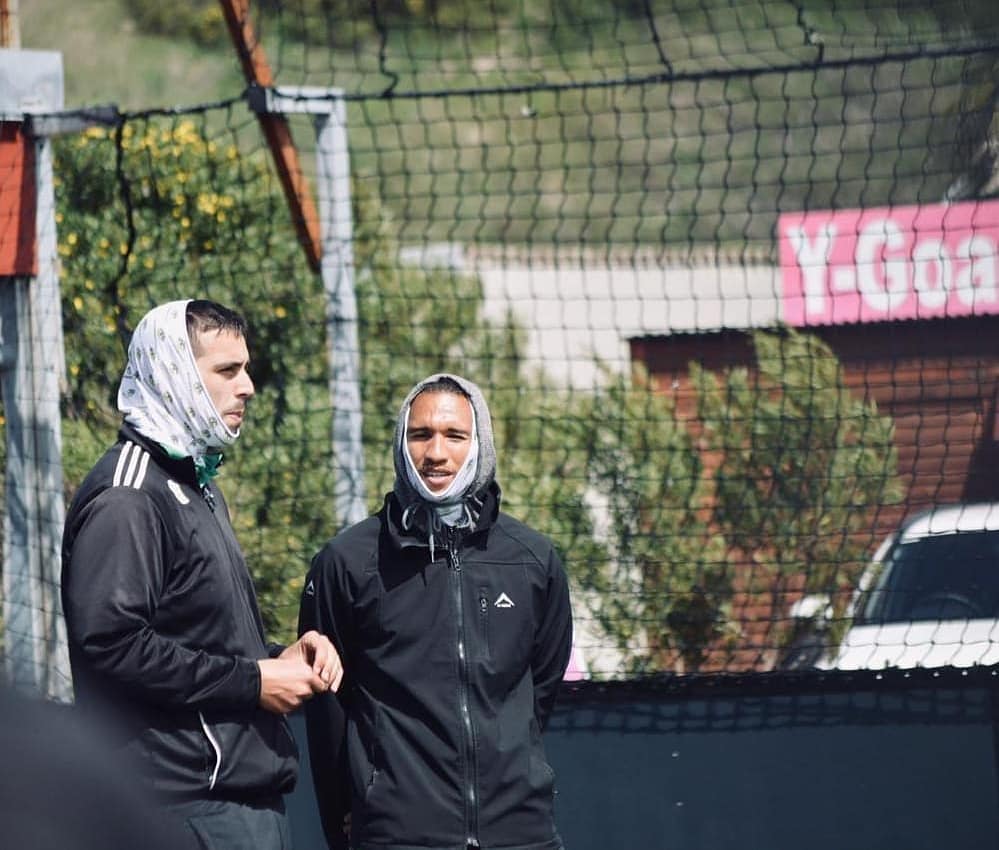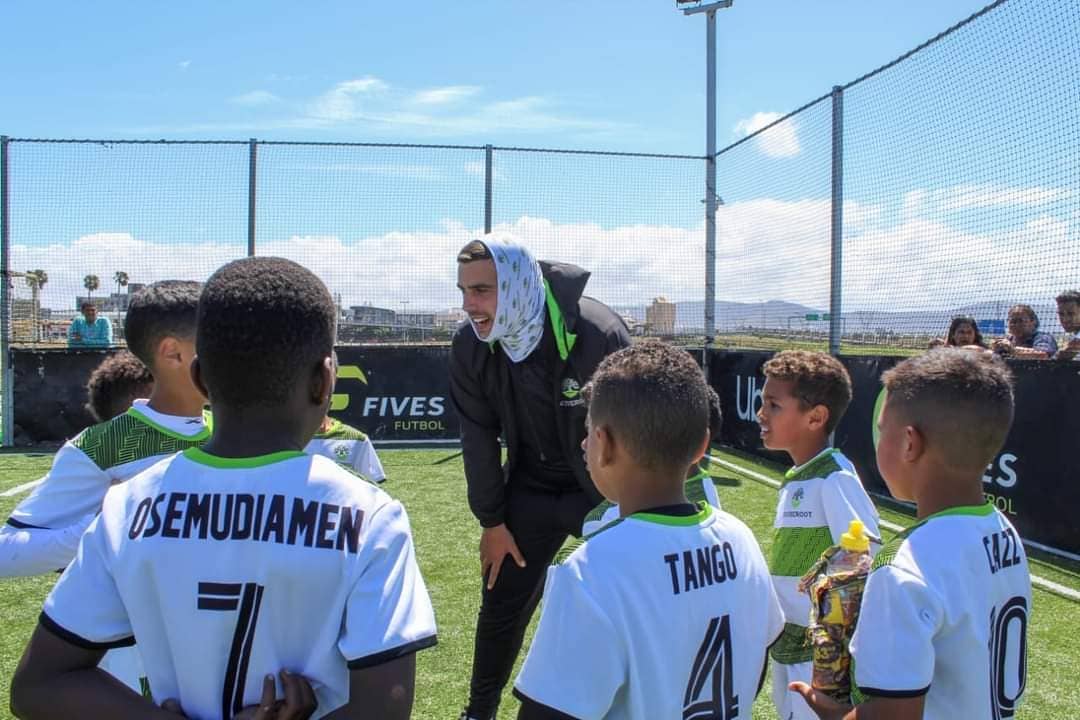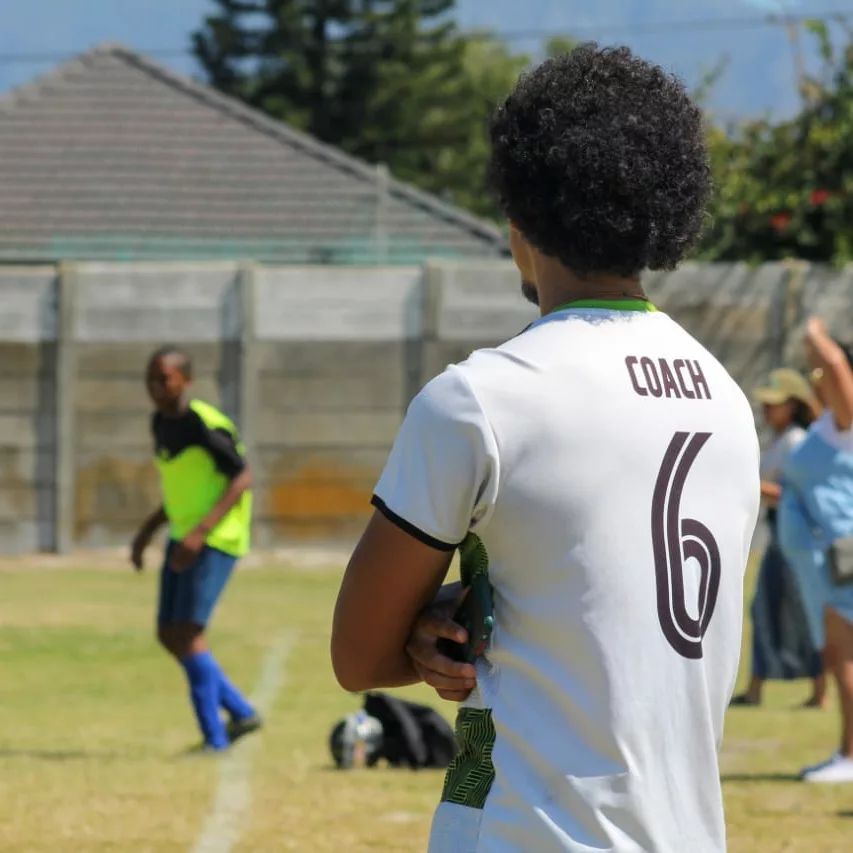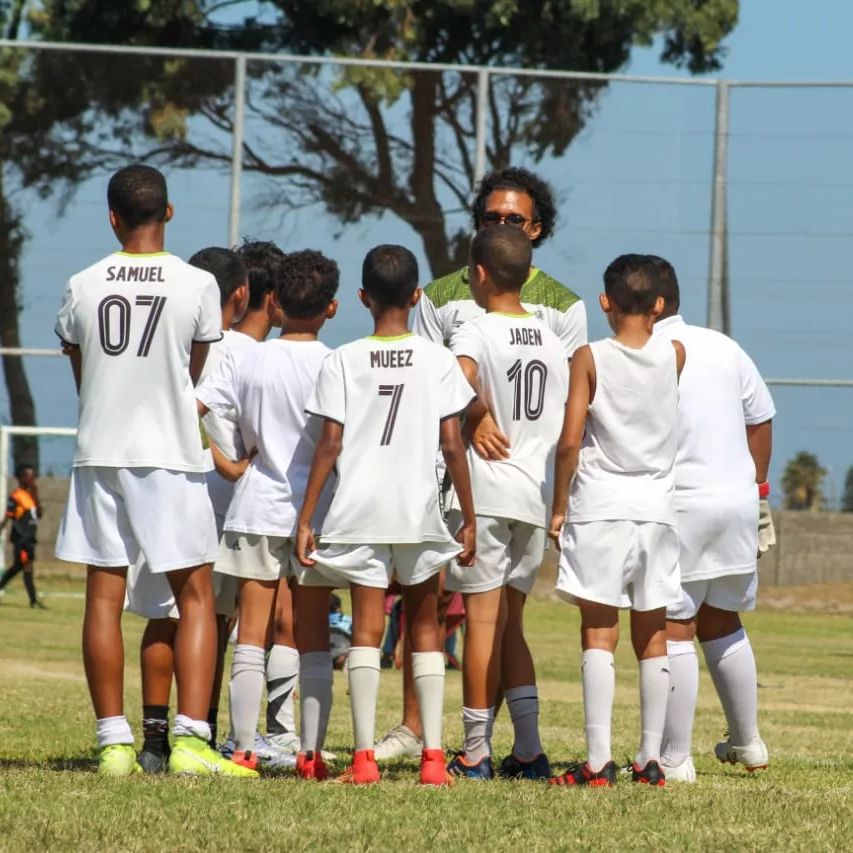Street football may be slowly dying, but Exuberoot Skills School has tried to close that gap in football development, offering the same level of quality and high performance as the top academies or clubs do – and helping youth grow as players and as people.
In an era where more and more parents choose to keep their kids inside because of the dangers that wait for them outside and the evolution of the gaming industry, street football, one of the main sources of football development is slowly dying. But the exponential growth of soccer schools like Exuberoot Skills School has tried to close that gap in the improvement of football.
The Skills School started its work in the community of Strandfontein in 2017 to tackle some pressing issues, as Exuberoot Directo Angelo De Sousa explains.

“As a coach with years of experience within the football system, I saw at LFA level how the
lack of structure, knowledge, resources, or togetherness influenced the entire club and
brand morale,” says the former Old Mutual Academy Coach. “New ideas fall on deaf ears, and there’s too much red tape to mention.”
Exuberoot’s vision is to offer a space where development can continue post-skills school, offering the same level of quality and high performance as the top academies or clubs do.
When De Sousa met Riyaaz Wyngaard – now the Programme Coordinator at Exuberoots – he found they shared a similar desire to be part of something bigger, and to build a world-class structure from the ground up.

So that’s what they did, initially focusing on ages 6-12, making use of the Y Goals turf, which was designed to develop the player’s individual ability. .
“We started off with 15 kids and grew to more than 40 in our first year,” De Sousa recalls. “We then started engaging creches and developed our minis programme for kids 3-5. And then we started planning toward securing a venue for our Academy Programme.”
The idea with the academy programme was to provide a place for that development to continue.
“What we started noticing was kids in our programmes started going to clubs from Under 10-12 and the experience was not the same. Unless you got into one of the top academies like Ubuntu, Hellenic, and the like, the level and quality at some of the LFA clubs wasn’t conducive to their development.”
De Sousa delves into the minor differences between a child with a proper technical foundation as compared to a kid coming from a LFA club that does not have the time or education to work on those small intricate details that add up to a lot when they reach a certain age.
“The importance of the right systems must be highlighted. Once we started having open
sessions it was very evident that some kids, especially from under 14 up lacked those basic
fine technical aspects that kids who were part of our or other skills programmes had. The extra individual training really helps for those who really want to pursue and grow in the game.”

Exuberoot tries to outsource some of the best coaches who offer mindset programmes for their students, engaging and working with coaches who offer emotional support and understanding, and offering workshops centred around health and nutrition, entrepreneurship, and life skills.
“The academy has a goalkeeper coach on board who works with the various goalkeepers. We also have a standard club philosophy with session plans which coaches are expected to
execute. This will allow each division to receive similar training and express the same brand
of football, all age groups play the same system, 4-3-3. Possession based attacking football.”
And since there’s such a focus on holistic development, they grow their own coaches as well.
“We encourage first team players to have coaching roles within the youth teams. We send
young assistant coaches for courses and badges. The first team has no age limit as per the LFA and league, but we have capped the team at Under 23 in order to be a feeder for teams seeking well groomed players”, De Sousa notes.

Their ultimate goal would be to send off the players into professional structures, whether they be local or abroad – but that’s not all. They also want to build a sustainable, world-class football development brand – with the right systems in place to allow the youth an opportunity to grow as footballers and as human beings.
“We want to be competitive on the field and have players show up with a professional and positive attitude, of course. But we also want to develop a culture of love, unity, and growth. These are things we really value, and we want to continue to express everyday and have it ingrained in everything we do.”
Edited by Nicklaus Kruger



